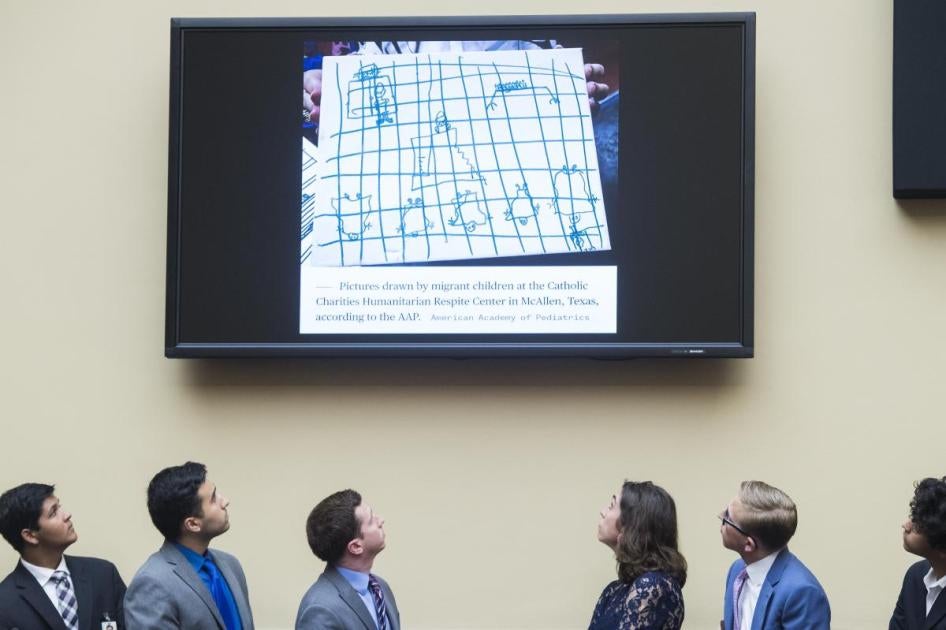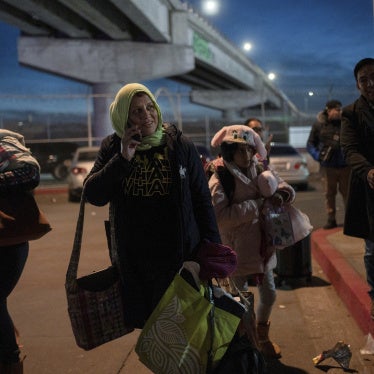As members of a team of lawyers tasked with interviewing immigrant children held in U.S. Border Patrol detention facilities, we have been compelled to speak out about our findings exposing the systematic abuse and neglect of migrant children in government custody.
Regardless of their views on immigration, good and decent people on both sides of the aisle should surely agree that we do not want to hurt children, and that, right now, we should set and enforce clear legal standards of care for children in U.S. government custody.
What we have learned so far is deeply troubling. At the migrant detention center in Clint, Texas, filthy children told us they’d had irregular access to showers, had been wearing the same clothes since they’d arrived, and were facing outbreaks of influenza. Some were trying to take care of younger children they didn’t know. A group of girls said guards pulled their bedding and mattresses out of their cell and ordered them to sleep on the floor as punishment for losing a comb.
Dozens of children held in Arizona told government inspectors they endured groping of breasts and genitals, along with racial and other derogatory slurs by border agents. A government inspection report detailed “dangerous overcrowding,” serious health concerns, and excessively prolonged detention in border stations in the Rio Grande Valley of Texas.
And even so, a government lawyer told a federal appellate court that the legal requirement of “safe and sanitary” detention conditions for children didn’t necessarily mean giving them soap, clean clothes, toothbrushes, or an uninterrupted night of sleep.
Clearly, enforceable standards are desperately needed. Members of both parties in Congress should insist that the Trump Administration work with pediatric experts to identify a robust set of standards and how to measure and enforce them.
Here is what needs to be done:
Accept the truth
The evidence is consistent, and damning. Hundreds of children have offered sworn declarations documenting their abuse and neglect at the hands of U.S. government officials. The children’s sworn testimony is supported by adult witnesses, court orders, government data, public statements from government officials, and interviews and photographs gathered and analyzed by the Homeland Security Office of the Inspector General. Let’s acknowledge that the current system for processing children is dangerously broken and that, no matter who is at fault, needs to be fixed immediately.
Separate the process from the result
Regardless of what people think the outcome of asylum hearings should be, the process should be fair. Children shouldn’t be abused while they await a decision.
Move forward around shared values
While the current political environment is starkly polarized, there are a few basic things we can agree on as a start:
First, children belong with family. We need to do everything we can to keep children with their families except when a qualified child welfare official determines it’s truly not in their best interest.
Second, if children must be separated from their adult family caregiver for any period of time, they should be kept with their siblings and other child relatives and cared for together by loving and attentive adults who are professionally trained to care for children—and then, only for the shortest time possible.
Third, children should not be in cages—ever. Extensive research has shown the profound harm caused by locking children up for any reason and for any length of time. The U.S. Department of Health and Human Services reports that of the unaccompanied and separated children it has released from its custody to date in the current fiscal year, it placed 89 percent with adult family members or other guardians living in the United States. We simply need to get them there. The remaining 11 percent should be in state-licensed foster homes, not Border Patrol stations or massive Office of Refugee Resettlement facilities.
And regardless of where children stay or with whom, they should be healthy, warm, and safe. That means nutritious food, clean water, regular bathing, proper beds, time and space to play and learn, supervision by kind and attentive adults (preferably their own families), and adequate medical care.
The cost of being cruel to children is high. Let’s do better by these children. Our own humanity is in the balance.
This article was authored by Michael Garcia Bochenek, Human Rights Watch and Warren Binford, Director of the Clinical Law Program at Willamette University.










